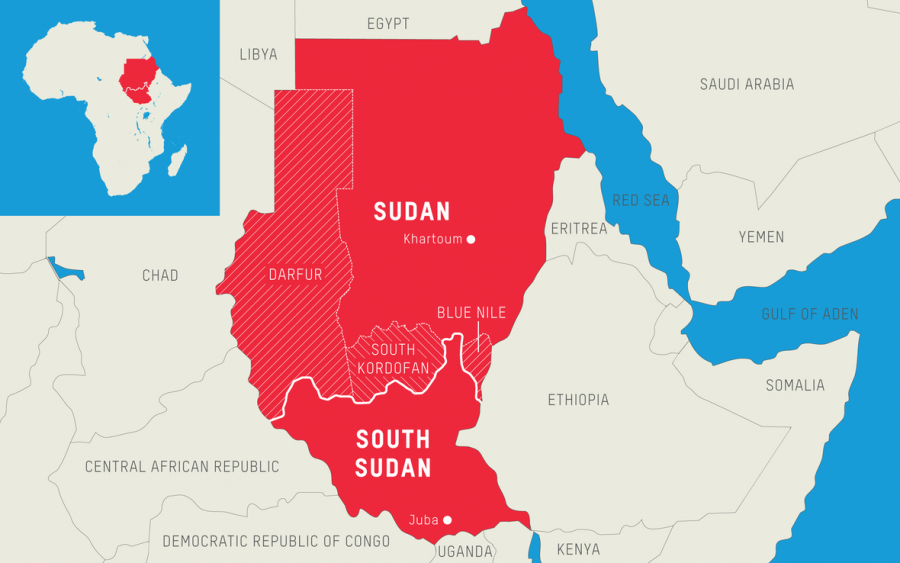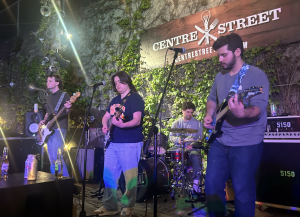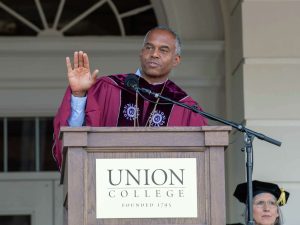Ethnic clashes in West Darfur further provoke Sudan’s tribal conflict
April 15, 2021
On April 5, 2021, the ethnic violence between the Masalit and the Arab Rizeigat in Genena, Darfur killed 40 and wounded 58 people, according to ReliefWeb, the largest humanitarian information organization. Casualties have escalated to 132 by April 8, according to the Washington Post. The violence erupted when unknown armed men shot two Masalit and wounded two others. The StarTribune reported two groups swiftly mobilized gun forces, resulting in more than just vicious deaths. In fact, U.N. notes that the conflict has affected more than 700,000 because Genena is a major base for aid delivery and transportation.
António Vitorino, the head of the International Organization for Migration, raised concern for the repercussions of attacks on women, children, and humanitarian workers. Prior to this conflict, ethnic clashes in West and South Darfur provinces resulted in the death of 470 people in January. The U.N. claims that this conflict has displaced more than 120,000 people, mostly women and children.
The tribal clashes between indigenous Muslim African groups and the Arab-dominated Sudanese regime trace back to 2003. The violence was provoked when two rebel groups formed by Masalit, Zaghawa, and Fur revolted against the oppressive government in the capital Khartoum. They demanded an end to systematic marginalization and government negligence of nomadic Arab communities invading African farmlands, as the U.N. High Commissioner for Refugees states. In response to the insurgency by the Sudan Liberation Movement and the Justice and Equality Movement, the Janjaweed, an Arab militia, targeted indigenous civilians, in which the Sudanese government often oversaw and participated in these massacres, according to the Human Rights Watch.
Many human rights groups and international leaders have accused the Sudanese Air Force of allying with the Janjaweed attacks. A team from Human Rights Watch spent 25 days on the edges of West Darfur to document the destroying of villages, burning of fertile land, and murder of original Masalit and Fur inhabitants.
In 2004, United Nations Secretary-General Kofi Annan condemned Janjaweed-led campaigns against the civilian, warning that the scale was comparable to the Rwandan Genocide. In 2008, Luis Moreno Ocampo, the Chief Prosecutor of the International Criminal Court (ICC), accused President Omar Hassan al-Bashir of crimes against humanity, genocide, and ethnic cleansing in Darfur. Specifically, the ICC has indicted the Janjaweed for the mass rape of young girls and women, murder, and burning of villages.
In 2019, the Sudanese delegation had been negotiating with Darfur rebels. According to BBC, Mr. Mohammed Hasan al-Tashi, a Sudanese government spokesman, claimed that “justice cannot be achieved if we don’t deal with the wounds.” In November, Sudan agreed to transfer al-Bashir and three other top-military generals to the ICC. The BBC also reported the establishment of a special tribunal to prosecute perpetrators of the ethnic conflict.
However, brutality and bloodshed in Sudan have not ceased. The ongoing conflict between the indigenous African groups and the Arab continues to negatively impact women, children, humanitarian workers, and refugees. After the April 5 clash, Al Doma, the West Darfur governor, emphasized that “more forces should be sent over because local ones do not have the resources to handle the situation.” He criticized the Khartoum central government for not supporting the civilians, and so “Darfur citizens are left on their own to face their destiny.”







